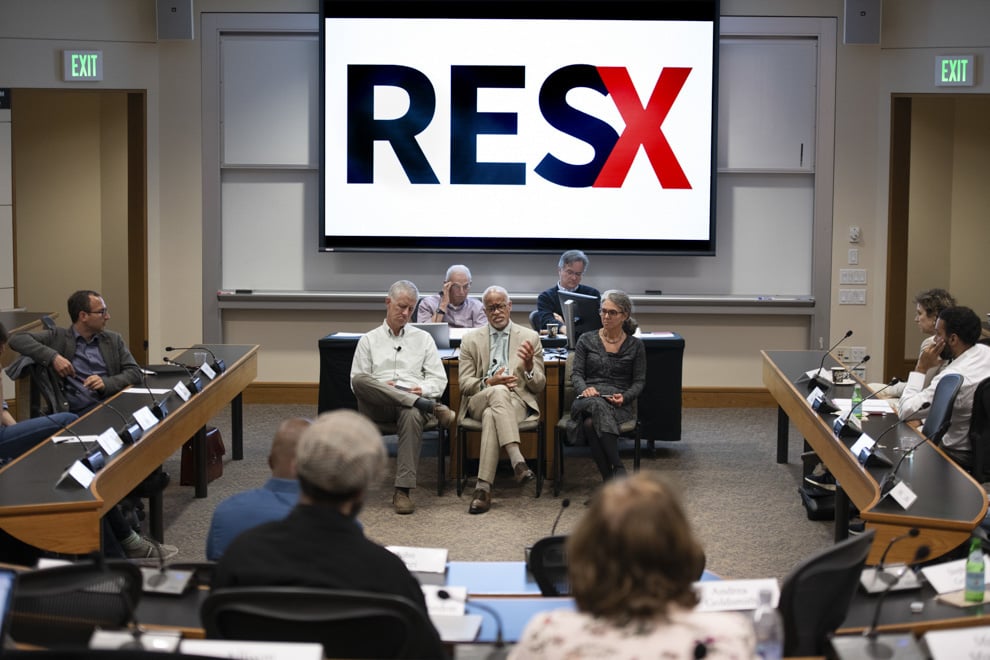Next quarter, students applying to staff Stanford’s dorms will be faced with only two position choices: resident assistant (RA) and ethnic theme associate (ETA).
Incoming student staff won’t have to worry about differences in pay, either. Starting in fall 2020, all student residential staff roles will be compensated equally, though it’s not yet determined whether that amount will match current RA pay rates.
Just one month before the selection process begins for next year’s residential staff, Stanford has announced that it will accept four core recommendations from the ResX task force report. The changes include discontinuing specialized positions other than ETAs, committing to pay equity for all student residential staff and working to develop equitable staff-to-student ratios depending on the type of house.
The changes — recommended by implementation teams of students, faculty and staff — will occur without reducing the number of student staff, according to the announcement from Vice Provost for Student Affairs Susie Brubaker-Cole, Senior Vice Provost for Education Harry Elam and Vice Provost for Budget and Auxiliaries ManagementTim Warner.
The University is still working out the details, however. Brubaker-Cole, Elam and Warner wrote that they expect to release an update on funding sources for increased staff salaries within the next few weeks. Working drafts of the new position descriptions should be ready by Jan. 6, according to an email sent to current residential fellows and student staff by Residential Education (ResEd) Director of Selection and Training Zac Sargeant.
As a result of the changes, the selection process will open on Jan. 14, one week later than planned. Incoming student staff will still be matched to their new residences before Week 10 of winter quarter, Sargeant wrote.
With the exception of ETAs, next year’s residential staff will be all be considered RAs, expected to carry out the functions of the soon-to-be-defunct peer health educator (PHE) and resident computer consultant (RCC) roles. ETAs will share all RA responsibilities except on-call duties, per the ResX task force recommendations. On the Row, the positions of kitchen, financial and community managers will continue informally, but all student staff members will officially be titled RAs.
“[A]ll positions should have a baseline role of supporting student health and well-being in each residential setting,” Brubaker-Cole, Elam and Warner wrote.
The implementation teams were asked to provide multiple options requiring varying levels of additional funding. Ideally, the teams found, all student staff would be moved to the current RA pay rate, $12,325 per year, which would require an additional $2.7 million annually. If that is not possible, the teams recommended that pay be set at $10,000 with the expectation that it would increase each year, requiring an increase of $1.5 million in annual funding.
The University is “actively working with multiple groups on campus to identify funds to meet the recommended pay levels,” according to the announcement.
The establishment of pay equity comes in the wake of activism from the student community. Last year, ETAs from the Casa Zapata, Ujamaa and Okada residences organized a petition to increase ETA pay, gathering 650 signatures and 245 testimonies by Dec. 2018. A petition to pay PHEs equally to RAs reached 566 signatures.
Last February, the University announced a $1,000 pay increase for all non-RA positions. This year, ETAs are paid $5,200 from ResEd, while PHEs are paid a $4,075 stipend through Vaden Health Center.
At the time, Brubaker-Cole and Elam called the raise “an important first step.” Ten months later, their next step seems to be complete pay equity, albeit at the expense of most specialized positions.
“While these recommendations are very exciting, we want to take a moment to recognize the many generations of PHEs and RCCs that have demonstrated such incredible commitment to our students,” Brubaker-Cole, Elam and Warner wrote.
“Thank you to the many who have served in these roles and to the professional staff who have supported and grown these programs,” they added. “The work you have done will continue to live on in how we imagine the future of the undergraduate residences.”
Contact Erin Woo at erinkwoo ‘at stanford.edu.
